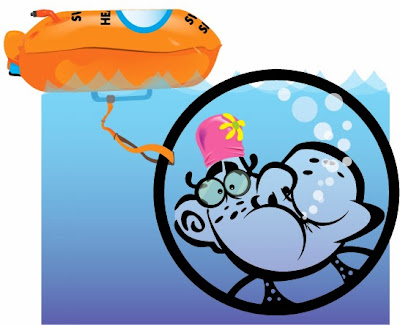Somehow it happened. Three-hundred posts passed through this blog. This is No. 300.
My apologies for every single one.
Yet who am I to ignore this milestone?! Who but I would note it?! So I celebrate with faces and musings from 2013. Again, my apologies.
Unsure from the start what this blog was supposed to be, I reach this milestone still unclear. I think it was to be an easy way to showcase my art, but much of my art requires explanation so I wrote about it too. Some of my art defies explanation but that hasn't stopped me from trying.
Put me before a keyboard and you can't shut me up. I do my best talking out of my fingertips, with time and isolation and a handy dictionary and a delete key.
The face — that Opie pie face, the logo for my business — was born of innocence. It's my actual fifth grade class photo. You laugh, perhaps, but let me suggest the indignity of lugging a hoop around your head all day long at school; let me further note the prescience of eyeglasses, which I didn't need until high school (a blog post for another day). Maybe now you're impressed, or you feel bad for me.
It was a burgundy-and-white world back then.

The face became an easy tool for my rants and raves and low trivia. It's my big-nosed barometer, from which you can know my mood without all them wordy words.

From the look on my face, for example, you could tell the tragic arc of the San Francisco Giants, my team, as it lost Opening Day when Dodgers starting pitcher Clayton Kershaw hit the go-ahead home run.
Optimism held steady for a few months …
But then the Giants could do no right and my face lost its structure. As the Giants melted down the stretch, so did I. Finally I had to grieve and let go.

Among you faithful who read this blog, fewer faithful read the baseball posts. Maybe you're bored with baseball. Maybe you're not a Giants fan. Maybe you rightly know the waste of time and energy in caring so much about something that wastes so much time and energy and money.
More of you read when I spout off, without reason or right, about What the Hell's Wrong with Things.
About our government. About our place in the world. About our collective insanity or apathy.
About our helplessness.
Were I judged as a news reporter, I'd have fired myself by now: I rarely follow up my rants, rarely find closure.
When a young man shot up Sandy Hook Elementary School before Christmas last year, I shot my mouth off and literally painted my blog blood red with indignation, then again when I got mad at how nothing was being done.
Nothing is still being done and I've stopped writing about it. Nothing except people are still being shot and killed, and still at schools. A student allegedly shot three students leaving a high school in Pittsburgh, Pa., just yesterday.
Last month, a teenager brought a gun to school in Sparks, Nev., two hours away, and killed a teacher, wounded two students, then killed himself.
The killings go on, nothing gets done about it. My words didn't help.

The country spies on you and me and the rest of the world. I took many words to conclude, "Whatcha gonna do?" It ain't the country of our constitutional ideals. It ain't even our country. It's the country of who holds the money and the information. My words don't help.
Syria enraged me, as you can see. The death, destruction and displacement of Syria and its people is what should really be enraging me, but instead it was the possibility that our country would ensnare itself in yet another war following Syria's alleged use of chemical weapons.
Then a too-good-to-be-true thing happened, and Syria agreed to inspections and eventual dismantling of its chemical weapons supplies.
I had moved on already. Maybe good news creeps me out. Maybe I don't believe it. Maybe something else got my attention.
Like the government shutdown. I vented a good bit of patriotic rage over that, and defended the Affordable Care Act, the straw dog over which government services, research, care and recreation came to a halt.

It turns out the Affordable Care Act may in fact be made from
straw and suckage, stitched together with false promises and 20th Century technical know-how in a 21st Century world. The Web site's continuing to get better, the government keeps saying. Sometimes you can't keep your health care plan, the president is saying, even though he promised you could. (Breaking news, apparently: You can keep your old plan!)
Three coders working from four desks in San Francisco, meanwhile, just created a buy-your-plan Web site in three days.
I wrote about swimming or some such instead. Busy busy, you know.
The only real-world issue I followed through to the end was Scouting's relationship with gays in the ranks.
Scouting moved a massive millimeter this year, allowing Scouts who are gay to join, but barring adult leader who are gay. Because being gay is a youthful indiscretion that a 10-mile hike will sweat out of you? I dunno. I remain perplexed but prepared to trot my likeness out next time Scouting's glacier of decision nudges forward.
Three-hundred posts, all personal, many trivial, maybe a couple phoned in but the rest written with a shard of my soul. Each a welcome to my little world of illustration and side gigs and swimming and the stuff that's been part of me. Some days I simply shared something you might like.

Thank you — and condolences — for reading any and all.
A toast: To 300 more. I wonder what they'll be about.
 |
| Liam Turner photo |

































